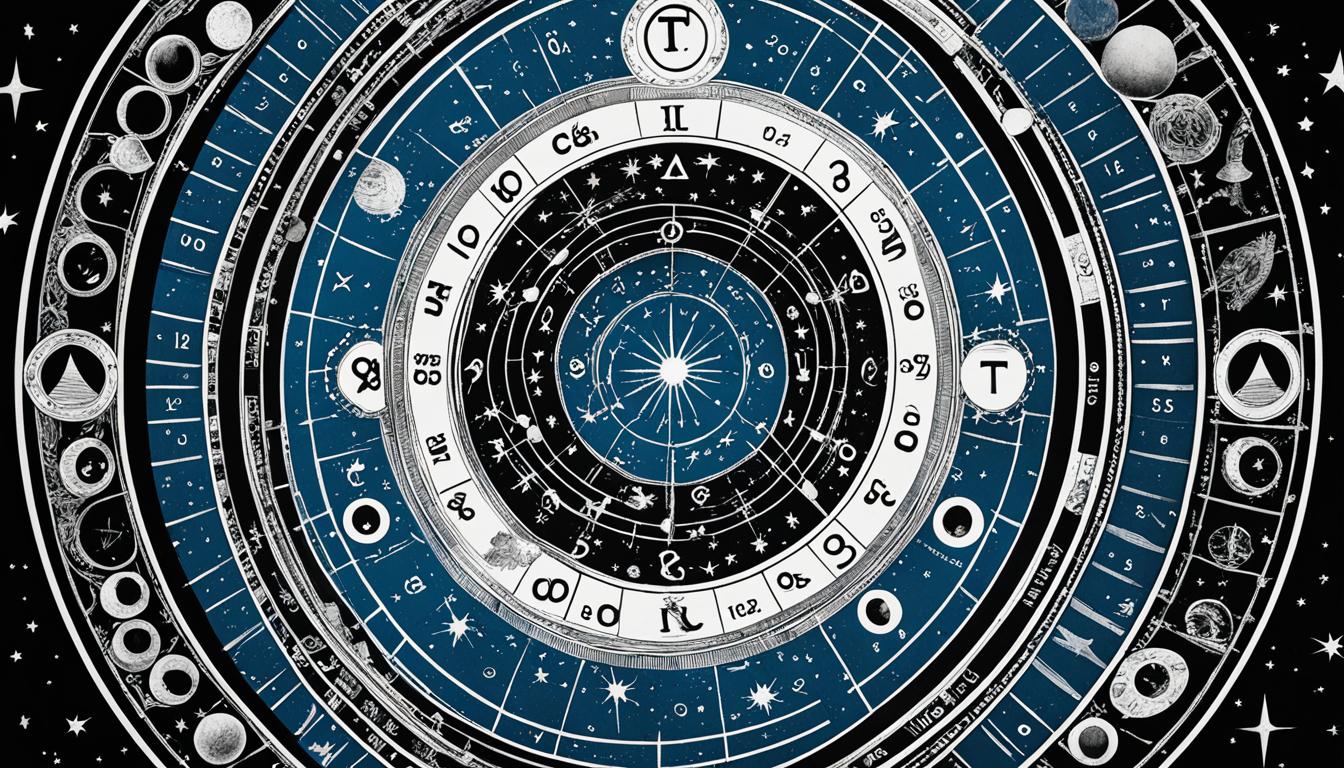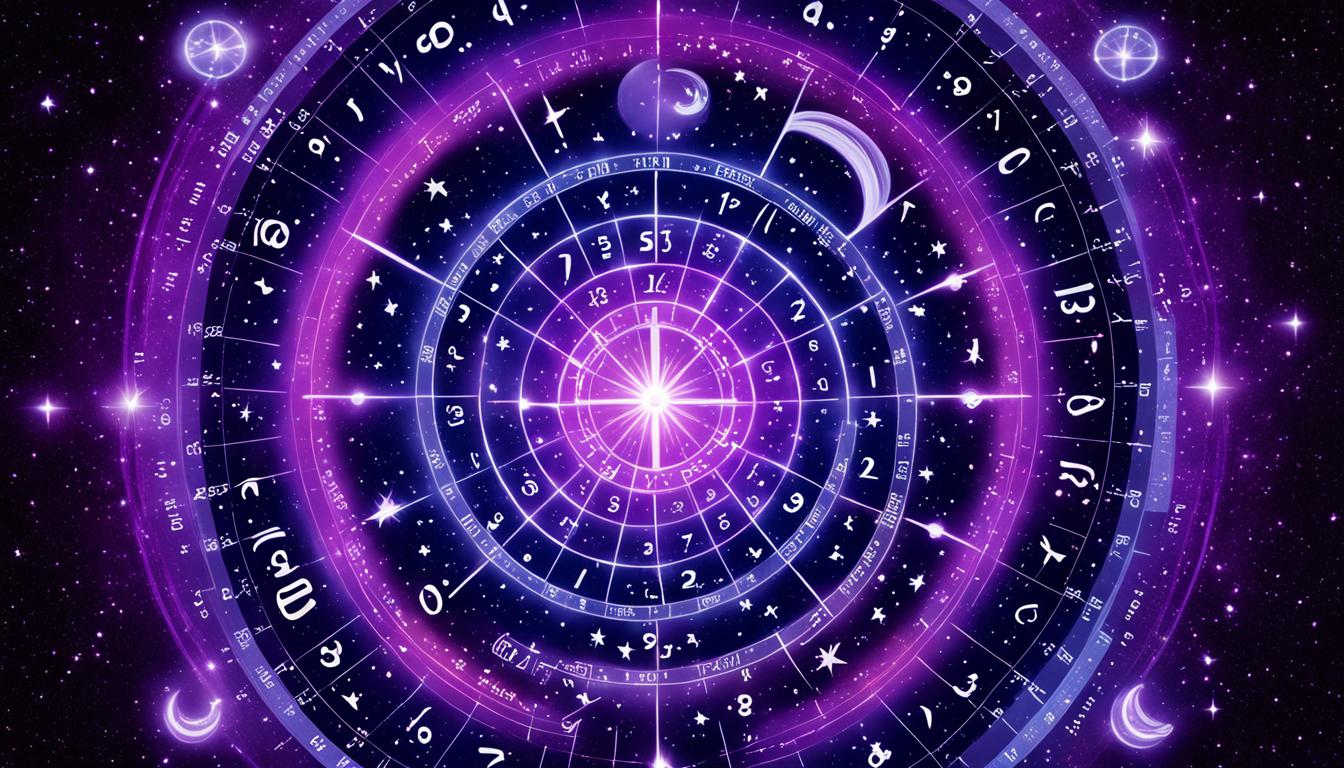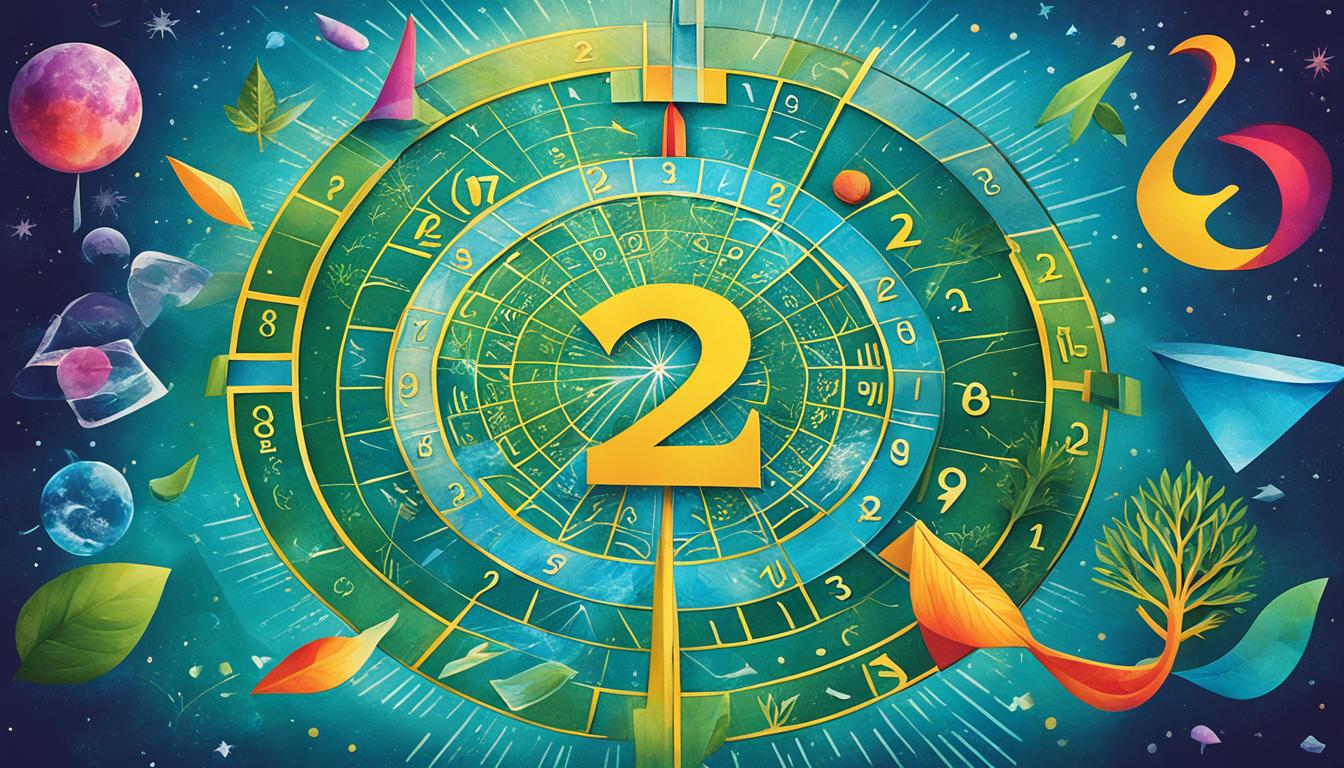As a professional writer, I have often come across the concept of numerology. However, as a Muslim, I have also been taught that certain practices may conflict with our religious beliefs and principles.
Through this article, I aim to explore why numerology is considered haram in Islam and provide insights into the perspective of Islamic scholars on this matter. Understanding the Quranic stance on numerology and its potential dangers will help us gain a clearer understanding of why it is prohibited in our faith.
Key Takeaways
- Numerology is considered haram in Islam due to its potential to lead to false beliefs, superstitions, and reliance on something other than Allah.
- The Quranic stance on numerology is crucial in comprehending its status within Islam.
Understanding Numerology
Before we can explore why numerology is considered haram in Islam, it’s important to have a clear understanding of what numerology entails and how it is perceived within the Islamic faith.
Numerology involves the study of the occult significance of numbers and the mystical relationship between numbers and physical objects or living things. In Islam, it is believed that Allah has created everything in the universe with precise measurements and proportions. However, this does not mean that any spiritual significance should be attributed to these measurements.
Islamic scholars hold varying opinions on numerology, with some viewing it as permissible as long as it does not conflict with sharia law, and others considering it forbidden due to its potential to lead to un-Islamic beliefs and practices.
It’s worth noting that there are different forms of numerology, and not all of them are considered haram in Islam. For example, the use of numbers in calculating prayer times or determining the qibla direction is permissible.
Overall, the Islamic view on numerology is complex and multifaceted, with various interpretations and opinions. By gaining a deeper understanding of numerology, we can better comprehend why it is considered haram in certain contexts.
Numerology and Quranic Stance
It is important to study the Quran closely to understand its stance on numerology. The Quranic perspective on numerology is not clear-cut, as there are no direct references to numerology and its practices.
Some scholars believe that numerology is permitted in Islam as long as it does not involve seeking knowledge of the unseen or involve the use of magic. Others argue that numerology is forbidden as it is often associated with superstition and can lead to the worship of numbers instead of Allah.
While there are no explicit references to numerology in the Quran, some verses do mention the significance of certain numbers, such as the number 7 in the creation of the heavens and the earth. However, these references are not intended to promote numerology, rather they serve to emphasize the power of Allah and his divine creations.
The lack of clarity in the Quranic stance on numerology has led to different interpretations among Islamic scholars. Some view numerology as a harmless practice, while others consider it forbidden due to its association with superstition.
Therefore, it is advisable for Muslims to avoid numerology and focus on seeking knowledge and guidance through approved channels, such as the Quran, the teachings of the Prophet Muhammad, and Islamic scholars.
Spiritual Beliefs and Numerology
One of the main reasons why numerology is considered haram in Islam is due to its spiritual aspects. Numerologists often attribute spiritual significance to numbers and believe that specific calculations can predict the future or provide guidance.
Such beliefs are seen as conflicting with the Islamic faith, which emphasizes the importance of trusting in Allah and seeking guidance through the Quran and the teachings of the Prophet Muhammad. Relying on numbers instead of Allah is considered a form of shirk or associating partners with Allah, which is strictly prohibited in Islam.
Moreover, many Islamic scholars argue that numerology can lead to false beliefs, superstitions, and misguided actions. Believing in the power of numbers can distract believers from the true source of guidance and lead to harmful decisions.
“Verily, Allah alone has knowledge of the Hour, and He alone sends down the rain, and He alone knows what is in the wombs. No soul knows what it will earn tomorrow, and no soul knows in what land it will die. Surely, Allah is All-Knowing, All-Aware.” – Quran 31:34
Thus, the Islamic view on numerology is clear: it is considered haram and forbidden, as it goes against the fundamental principles of the faith and can lead believers astray.
Sharia Law and Numerology
Sharia law is a comprehensive legal system derived from the Quran, Sunnah, and Islamic jurisprudence. It regulates all aspects of life, including religious practices, social interactions, and financial transactions. In the context of numerology, Sharia law prohibits any practice that involves divination, fortune-telling, or seeking knowledge through supernatural means.
Islamic scholars believe that numerology falls under the category of fortune-telling and divination. This is because it involves interpreting numbers and attributing spiritual meaning to them. Quranic verses emphasize the importance of relying solely on Allah for guidance and seeking knowledge through the Quran and the teachings of the Prophet Muhammad. Seeking knowledge through numerology, therefore, is seen as contradictory to this core principle of Islamic faith.
Additionally, Sharia law prohibits any practice that leads to superstition or false beliefs. Numerology, with its emphasis on numbers and predictions, can lead to false beliefs and reliance on something other than Allah. This is seen as a threat to the Islamic belief system and is, therefore, considered haram.
The Dangers of Numerology
As a Muslim, I believe that numerology is haram, or forbidden, because of the potential dangers it poses. The practice of assigning spiritual significance to numbers and making predictions based on calculations can lead to false beliefs and superstitions, taking one’s focus away from the worship of Allah. It can also lead to a reliance on numbers instead of placing complete trust in Allah’s plan and guidance.
Numerology can also be seen as a form of divination, which is strictly prohibited in Islam. Divination involves seeking knowledge of the unseen through means other than divine revelation and is considered a major sin in Islam. By delving into numerology, one may unintentionally open themselves up to the influence of jinn or other harmful forces, which is not a risk worth taking.
Furthermore, numerology can distract Muslims from seeking knowledge and guidance through approved channels. Islam provides alternative methods for seeking knowledge, such as studying the Quran, the teachings of the Prophet Muhammad, and consulting with Islamic scholars. By relying on these sources, Muslims can ensure that their beliefs and practices align with the guidance of Allah and avoid any potential harm that may come from numerology.
As Muslims, we must always be vigilant in avoiding forbidden practices that can lead us away from the worship of Allah. By understanding the potential dangers of numerology, we can steer clear of this practice and stay on the path of righteousness.
Alternative Approaches to Seeking Knowledge
As Muslims, we are encouraged to seek knowledge and guidance through approved channels, such as the Quran, the teachings of the Prophet Muhammad, and reputable Islamic scholars. Numerology, on the other hand, relies on calculating the significance of numbers and making predictions based on them, which can lead to false beliefs and superstitions. Therefore, adhering to approved Islamic sources of knowledge is essential.
Islam promotes the importance of seeking knowledge as a means of understanding and obeying Allah’s commands. It encourages Muslims to read the Quran and to follow the example set by the Prophet Muhammad. Additionally, seeking knowledge through reputable Islamic scholars and institutions is seen as a way to gain a deeper understanding of Islam and to make informed decisions in daily life.
Importance of tawakkul (reliance on Allah)
While seeking knowledge is important in Islam, it is equally important to place trust in Allah and to rely on Him for guidance. This means that relying solely on numerology to make decisions or predict the future is seen as going against the Islamic faith. Muslims are taught to trust in Allah’s plan and to seek His guidance through prayer and reading the Quran.
Prohibition of seeking knowledge from false sources
Islamic teachings emphasize the importance of seeking knowledge from reputable sources and avoiding sources that promote false beliefs and superstitions. Numerology can be seen as a false source of knowledge, as it relies on interpreting the significance of numbers rather than seeking guidance from Allah and reputable Islamic sources.
In conclusion, Islam provides alternative approaches to seeking knowledge and guidance that emphasize the importance of relying on Allah, the Quran, and the teachings of the Prophet Muhammad. Numerology is considered haram because it can lead to false beliefs and superstitions, and it goes against the Islamic principle of relying on Allah for guidance. As Muslims, we should strive to seek knowledge and guidance from approved Islamic sources and to place our trust in Allah.
Misconceptions About Numerology
There are several misconceptions about numerology among Muslims, and it can be challenging to differentiate between what is permissible and what is haram. For example, some may believe that using numerology for practical purposes, such as calculating zakat or determining an auspicious date for a wedding, is acceptable. However, this is not the case.
It is crucial to understand that any use of numerology, regardless of the intention, is considered haram in Islam. This is because numerology involves attributing spiritual significance to numbers and making predictions based on calculations, which can cause one to stray from the worship of Allah and rely on something other than Him.
It is also essential to note that numerology is not a part of Islamic tradition and is not mentioned or endorsed in the Quran. Therefore, any claims stating otherwise are invalid and misleading.
Furthermore, some may argue that numerology has roots in ancient Islamic traditions, such as Kabbalah and Tafsir, and is, therefore, permissible. However, this claim is not valid, as numerology is not mentioned or endorsed in any of these traditions.
In conclusion, it is crucial for Muslims to understand the Islamic perspective on numerology and distinguish between what is permissible and what is haram. While there may be misconceptions regarding the use of numerology, it is essential to follow the teachings of the Quran and the Prophet Muhammad and avoid any practices that may lead to false beliefs and superstitions.
Section 9: Conclusion
After exploring the concept of numerology in Islam, it is clear why it is considered haram. Numerology involves attributing spiritual significance to numbers and making predictions based on calculations, which conflicts with the Islamic emphasis on relying on Allah, the Quran, and the teachings of the Prophet Muhammad.
The potential dangers associated with numerology, such as leading to false beliefs and superstitions, further strengthen the case for its prohibition. Sharia law also plays a significant role in determining what is permissible and forbidden in Islam, and it conflicts with numerology.
While seeking knowledge is highly encouraged in Islam, it must be done through approved channels. The Islamic perspective on seeking knowledge differs from numerology, which is why Muslims are encouraged to seek guidance through other methods.
Misconceptions About Numerology
There may be misconceptions about numerology among Muslims or misinterpretations of what is considered haram. However, it is important to understand the Islamic view on numerology and why it is prohibited. By doing so, we can avoid falling into the potential dangers associated with numerology and seek knowledge and guidance through approved channels.
Overall, understanding the Islamic perspective on numerology helps to clarify why it is prohibited and encourages Muslims to seek knowledge and guidance through approved channels.
FAQ
Q: Why is numerology considered haram in Islam?
A: Numerology is considered haram in Islam due to its potential to lead to false beliefs, superstitions, and reliance on something other than Allah. It conflicts with the teachings of the Quran and the importance of seeking knowledge and guidance through approved channels.
Q: What is numerology and how is it perceived within the Islamic faith?
A: Numerology is the belief in the mystical or divine significance of numbers. Within the Islamic faith, numerology is viewed differently by scholars, with some considering it forbidden due to its association with superstition and reliance on calculations, while others believe it is permissible to study as long as it does not lead to harmful beliefs or actions.
Q: Is there any mention of numerology in the Quran?
A: The Quran does not explicitly mention numerology. However, Islamic scholars interpret various verses to establish the Islamic stance on numerology, which generally leans towards it being forbidden due to its potential for leading to false beliefs and superstitions.
Q: Why are the spiritual aspects of numerology considered forbidden in Islam?
A: Numerology often involves attributing spiritual significance to numbers and making predictions based on calculations. Within Islam, such practices are considered forbidden as they can lead to reliance on something other than Allah and undermine the belief in divine destiny.
Q: How does Sharia law relate to the prohibition of numerology?
A: Sharia law plays a significant role in determining what is permissible and forbidden in Islam. Numerology is prohibited in Islam because it conflicts with various aspects of sharia law, such as the prohibition of seeking knowledge from sources other than Allah and the Quran, and the emphasis on relying on Allah for guidance.
Q: What are the potential dangers associated with numerology?
A: Numerology can lead to false beliefs, superstitions, and reliance on numbers instead of placing trust in Allah. It can also divert attention and devotion away from seeking knowledge through approved channels and relying on the teachings of Islam.
Q: How does Islam provide alternative approaches to seeking knowledge?
A: Islam emphasizes the importance of seeking knowledge through the Quran, the teachings of the Prophet Muhammad, and relying on Allah for guidance. Muslims are encouraged to avoid practices like numerology and instead turn to approved sources of knowledge and guidance within the Islamic faith.
Q: What are some misconceptions about numerology in Islam?
A: There may be misconceptions among Muslims regarding the permissibility of numerology or misinterpretations of what constitutes haram. This section aims to address these misconceptions and provide a clearer understanding of the Islamic view on numerology.
Q: Why is it important to understand the Islamic perspective on numerology?
A: Understanding the Islamic perspective on numerology helps to clarify why it is considered haram and encourages Muslims to seek knowledge and guidance through approved channels. It emphasizes the importance of placing trust in Allah and the teachings of Islam rather than relying on numerological practices.



